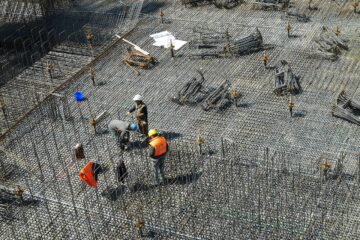![]()
Petitioner: – Mr G S Sarna
Vs
Respondent: – University of Lucknow & ORS
Citation: – 1976 AIR 2428
Date of Judgement – 28/07/1976
BENCH: – SINGH, JASWANT RAY, A.N. (CJ)
BEG, M. HAMEEDULLAH
COURT: – LUCKNOW BENCH OF THE ALLAHABAD HIGH COURT
ACT: – Doctrine of waiver, whether applicable to later grievance of bias, Article 226 Constitution of India.
Introduction:
Regarding this case the appellant (Mr G S Sarna) and the respondent (Dr K.S Mathur) both were candidates for the post of professor of Anthropology in Lucknow University, both applied for the Job by seeing an advertisement in the newspaper and only these two were selected for the interview at the last. Committee of five-person took the interview in which three people were expert in their respective fields. The committee conducted the interview and gave to position of professor of Anthropology to Dr K.S Mathur (the respondent no 8), Mr G S Sarna (the appellant) challenged this decision of the committee in the court of law stating that the committee was biased to the respondent as he had some personal connection with them. The appellant contested the appeal on two grounds, first on the bases of the jurisdiction of the selection committee, the appellant had renounced his rights to criticize its constitution and secondly, the interlocutory proceeding had remedies were available, and hence it was implausible in the court.
Facts
- The appellant Dr G Sarna applied for the post of professor of Anthropology at Lucknow University.
- On February 27, 1974, a Selection Committee consisting of Shri A.K.K. Mustafi, Vice-Chancellor of the University, Dr K.N. Shukla, Dean, Faculty of Arts and Professor & Head of the Department of Hindi of the University, and three experts who are Dr S.C. Dube, Dr S.R.K. Chopra and Dr T.B. Mayak, respondents 3, 4, 5, 6 and 7 respectively met to interview the candidates and to make their recommendation to the Executive Council of the University.
- After the interview, the committee decided to give the position to Dr K.S Mathur respondent number 8.
- The appellant got to know the committee decision, challenged the decision on the petition under Article 226 saying that the decision was biased towards the respondent.
- The appellant said that the panel members had a personal relation with the respondent Dr K.S Mathur and had some biased against the appellant.
- The appellant presumed the bias against him by two members of panel Dr S.C Dubey and Dr S.R.K Chopra and accused them to influence the decision of the whole panel to give the job to Dr K.S Mathur.
- The appellant-accused Dr Chopra of bias because he said that they had a strained relationship because they stood for election against each other in an election.
- And accused Dr S.C Dubey that whenever he visited Lucknow, he stayed with Dr K.S Mathur and shared a personal relationship with him.
Issues
- Can the court intervene in the decision of the executive council of the University?
- Can the said bias be considered in the Court of Law?
- If there is a provision given against the bias in the executive committee then can it be challenged in the Court?
- Can the Principle of Natural Justice prevail in this case?
Judgment
The Hon’ble High court dismissed this application. This is an important judgement because the Court because it specified about bias and preconceptions in the mind of Judges and it suggested that no one can be completely free of preconceptions and prejudices. The court also held in this case that the appellant cannot denounce the constitution of the committee whenever it doesn’t suit him and it cannot be maintained in the court because it is an interlocutory process. The court brings observation to the principle of natural justice as in this case the process of selecting a professor is a domestic proceeding meaning that it’s an administrative proceeding.
The Court quoted that “We do not, however, consider it necessary in the present case to go into the question the of the reasonableness of bias or real likelihood of bias as despite the fact that the appellant knew all the relevant facts, he did not before appearing for the interview or at the time of the interview raise even his little finger against the constitution of the Selection Committee. He seems to have voluntarily appeared before the Committee and taken a chance of having a favourable recommendation from it. Having done so, it is not now open to him to turn round and question the constitution of the Committee. The following observations made therein are worth quoting: – “It seems clear that the appellant wanted to take a chance to secure a favourable report from the tribunal which was constituted and when he found that he was confronted with an unfavourable report, he adopted the device of raising the present technical point.” Meaning that anything conducted by a biased committee or an inquiring or an authority is void ab initio which means that its void at the initial step and there should be sufficient bias to be proved to quash the decision of committee or inquiry.
The court will need a reasonable ground to be convinced that there was or is biased and some action should indicate malefice which will be the proof of bias. Even if anyone member is biased the decision taken by that committee or inquiry will be illegal and the court told in this specific case that if a person knows of this bias and does not raise the issue, he creates estoppel for himself and is not allowed to question the same after the conclusion of the committee. The rule against bias is one of the most important rules in the principle of natural justice and is in the direct link of a Latin maxim ‘Nemo debet esse judex in propria causa’ which means that no man shall be the judge in his own case.
What is Principle of Natural Justice?
The concept is very old and it can be rooted to the people of Greek and Roman people. It is an expression in English common law which says about fairness in a procedure. There is no definition of natural justice but it is applied and accepted by many Judges, Lawyers and Scholars, Lord Esher M.R defined principle of natural justice as a fundamental justice and Justice Bhagwati has taken it in action by article 14 and 21 of Indian constitution. There are basically three rules on the principle of natural justice first one is Hearing rule second Bias rule and third is Reasoned decision.
- Hearing rule: – It states that the person who is affected should be given a fair opportunity to express himself before a panel of expert members.
- Bias rule: – It states that the panel of expert in front of whom any this is expressed the panel should be free and fair and no bias should be involved.
- Reasoned decision: – It states that the conclusion or judgment taken should be valid and on reasonable ground.
It is claimed by acting judiciary officer (Judge), quasi-judicial e.g. like panchayat and tribunals
Nemo Judex in Causa Sua
It means that “NO ONE SHOULD BE JUDGE IN HIS OWN CASE” it deals with the rule of biases. Bias means favouring of one side because it has something to gain for a person in a panel. It basically yells that there should be no bias while making a judgement in a matter. Bias can be of three types Pecuniary bias, personal bias and official bias. The principle is very straight forward and says that bias is bounded when one is judging his own matter because he will have some interest in it e.g. Personal bias. If a person is judging a case against a known person, he will have a pecuniary bias, official bias comes into place where the interest of the person is in a position of influence. When bias comes into the principle of natural justice the whole principle becomes corrupted because it destroys the very own existence.
In this particular case, we can see the case of personal Bias, it comes into light when a dear person i.e. friend, relationship official or unofficial, such things can make a person disqualify himself from a seat of a judge. A judge can be any person not only in the judicial process but also in the quasi-judicial proceeding or administrative proceeding. The supreme court has quashed many of these kinds of cases one being A.K Kripak v. Union of India in which the supreme court removed the selection made by the selection board on the said grounds that selected candidates are also a member of selection board which means that they were judge in their own case and selected themselves for the positions. When there is a breach of natural justice the decisions taken are void and any order given is also void. But it should be proved to the court that it is a breach of natural justice before the commencement of the proceeding otherwise it would indicate malice in one of the parties.
Conclusion
In this case, we can observe that the court has distinctively said that the principle of natural justice is being followed. This case explains to us that when one has preconceptions before a panel it should be cleared before and not after as it would not be maintained in the court of law or anywhere else. Clearing afterwards would suggest that there is some malice in it and will cause problems later on. When we talk about the principle of natural justice, we should always remember about three things one fair hearing, two rulings given without any prenotions or bias and three the decision given should be given on valid grounds and should be fair to everyone.
The principle of natural justice is put into our constitution in section 14 and 21 which tells us that it is an important principle that we are adopted in our own constitution. In this case, personal bias comes into view of the court and the court dismisses it. The appellant knowingly continued the process and knew that it would be unfavourable to him and still proceeded with the process and used this decision of the committee, at last, to challenge it in the court. The appellant wanted the job, therefore, filed waited till the result of the committee and took a chance to favour a beneficial report from the tribunal which would secure him the job. The applicant knew all the odds and knew all the relevant facts of bias against still proceeded with it just to oppose the decision of the committee in the court. And this was the proof of malice the court needed to expel the case.
References:
- A.K Kripak v. Union of India AIR 1970 SC 150
- Ghazal Ghai, principal of natural justice,lexlife India,May 18 2020,https://lexlife.in/2020/05/18/principle-of-natural-justice-rule-against-bias/#:~:text=Nemo%20judex%20in%20causa%20sua%2C%20also%20known%20as%20the%20rule,impartial%20and%20free%20from%20bias.&text=A%20person%20can%20apply%20his,follows%20the%20path%20of%20impartiality
- ShreyaTripathi,prinicpleofNaturaljustice, ipleaders,https://blog.ipleaders.in/natural-justice/amp/
- Mohd Aqib Aslam, principles of natural justice in the light of administrative law, legal services India, http://www.legalserviceindia.com/legal/article-1659-principles-of-natural-justice-in-the-light-of-administrative-law.html



0 Comments